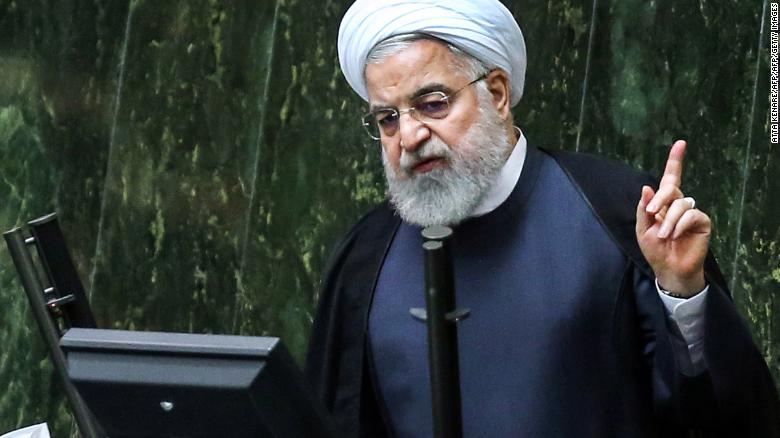Speaking at a televised cabinet meeting Wednesday, Rouhani said the ball was "in the US court now."
"If Washington returns to Iran's 2015 nuclear deal, we will also fully respect our commitments under the pact," he said, adding in reference to Trump that "a tyrant's era came to an end and today is the final day of his ominous reign."
Tensions between the two countries ratcheted up during Trump's time in office, appearing to almost reach breaking point after the US assassinated Iranian general Qasem Soleimani last January. Recent weeks have seen a new round of saber-rattling, amid fears the Trump administration might attempt to provoke a conflict in its final days.
With Biden -- who was a member of the Obama administration which negotiated the original deal -- entering office Thursday, hopes are high for rapprochement.
At the meeting Wednesday, Rouhani castigated Trump, saying his four years in office "bore no fruit other than injustice and corruption and causing problems for his own people and the world."

Iran's President Hassan Rouhani speaks at parliament in the capital Tehran on September 3, 2019.
What was in the nuclear deal?
Officially titled the Joint Comprehensive Plan of Action, or JCPOA, the landmark agreement was intended to limit Iran's civilian nuclear program, thereby preventing the country from ever developing nuclear weapons.
The deal, struck in Vienna following two years of intensive talks orchestrated by the Obama administration, was signed by Iran and six other nations in 2015.
Under the deal, the Iranian government agreed to three key things: reducing the number of centrifuges in the country by two-thirds, slashing its stockpile of enriched uranium, and capping ongoing enrichment at 3.67%, an amount sufficient for energy provision but not enough to build a nuclear bomb.
In addition, Iran was required to limit uranium research and development, and allow inspectors from the International Atomic Energy Agency (IAEA) certain access to its nuclear facilities.
In return for its compliance, all nuclear-related sanctions on Iran were lifted in January 2016, reconnecting the country's stagnating economy with international markets.
Trump abandoned the deal in 2018, though the agreement itself continues to exist, with Iran, France, the United Kingdom, Germany, China and Russia all still party to it. Since Washington walked away, however, Iran has increased uranium enrichment beyond the limits set by the deal, sparking concern that Tehran could in the future pursue a nuclear weapons program.
Biden's move
Biden has expressed a desire to return to the 2015 agreement, writing for CNN last year that Trump had "recklessly tossed away a policy that was working to keep America safe and replaced it with one that has worsened the threat."
"I will offer Tehran a credible path back to diplomacy," the then-candidate wrote in September. "If Iran returns to strict compliance with the nuclear deal, the United States would rejoin the agreement as a starting point for follow-on negotiations."
Despite this, some had feared that developments in the final months of the Trump administration could bind Biden's hands, as both the US and Israel increased pressure on Iran, potentially undermining future diplomatic entreaties.
In November, a top Iranian nuclear scientist was assassinated near Tehran, in an operation the government blamed on Israel, while in late December, US nuclear-capable B-52 bombers were flown to the Middle East as defence officials spoke of the potential for a conflict a year on from Soleimani's death.
While Iran announced this month that it had resumed enriching uranium to 20% purity, and seized a South Korean-flagged chemical tanker in the Persian Gulf, the anniversary passed without any conflict between US and Iranian forces, opening the door for the type of diplomacy apparently welcomed by Rouhani this week.

